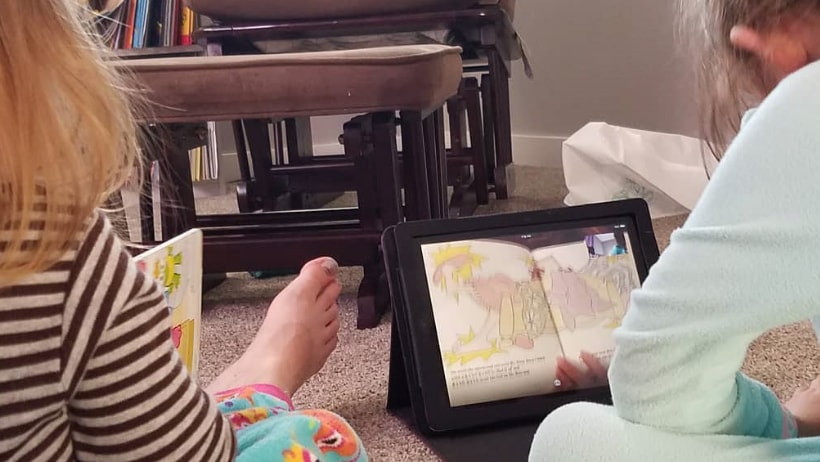There are countless conversations I’ve had with people in generations before me about how lucky I am to live in the world today, and I feel similarly about my kids’ lives. It seems that every new generation has certain things easier and faster. Need to know information? Google it, or even better, let Alexa tell you. Back in my day – who’d have ever thought I’d be saying “back in my day” – I had to use the card catalog and encyclopedias to find information. These days, if you want to find something to watch on TV, just speak into the remote. Believe it or not, I remember being the remote, getting up to tune the knob to another channel. These advances in technology give the older generation some perspective, but sometimes it’s difficult for the younger generations to understand just how lucky they are, especially when forced to suffer inconveniences like a dead iPhone or when there is actually “nothing” on TV.

Technology aside, the phenomenon of generational comparisons goes back to Moses in the Torah. The Israelites are constantly pointing out how much better life was before they left Egypt; they don’t yet grasp how lucky they are to be free. Parshat Vaetchanan, which we read this week, offers some insight into this concept. The Torah portion continues with the retelling of the laws here again in the book of Deuteronomy. We also read about God’s persistent refusal to allow Moses to enter the Land of Israel. The Torah then issues a caution to uphold the mitzvot as the key to building an Israelite society. Moses then sets three cities of refuge, and we receive probably the most well-known instruction in the Torah, the Shema.
The text begins with the following words from Moses:
I pleaded with the Lord at that time, saying, “O Lord God, You who let Your servant see the first works of your greatness . . . Let me, I pray cross over and see the good land.”
Moses begins by asking to see the land of Israel. He does this publicly, in front of the nation. Several commentators pick up on how out of character this is for him. Moses rarely pleads on his own behalf, always for the greater community. Yet here he is facing his own mortality and the fact that his mistake has cost him seeing the land of Israel, and he is heartbroken.
Perhaps, as one final lesson to the Israelites, Moses is trying to teach remorse for sins and show them the true blessing of living in a free land, which he won’t experience. Perhaps he’s showing them that you should never lose hope about what may come and that even our deepest prayers may be eventually answered. Whatever the impetus for this plea, it’s a reminder that each generation walks a unique path. It may not always be easy to see in the moment, but we are all blessed to live in the world today.



